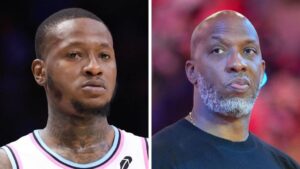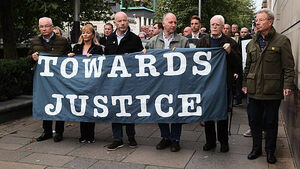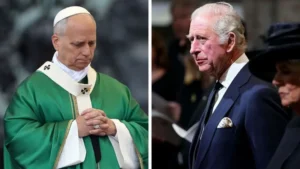The US elections caused a rift in the Cyrus family. Miley Cyrus, a staunch progressive, confirmed her support for Kamala Harris and just authorized the Democratic candidate to use her hit Party USA. His father, Billy Ray Cyrus, a Democratic voter in his youth, now supports Donald Trump. Both candidates are looking for support from the music world, but the competition is uneven. Trump recruits followers from alternative scenes such as trap, electronic indie and gangsta rap, but major stars, including Taylor Swift and Beyoncé, support Harris. The exception, as usual, is the country scene. Country music has a long tradition of ideological conservatism, dating back to pioneers like Hank Williams and creating reactionary songs like Muskogee’s Merle Haggard’s Okie and Clint Black’s Iraq and Roll. According to Billboard editor-in-chief Melinda Newman: “Country music and conservative politics have gone hand-in-hand for more than 50 years. When Richard Nixon ran for re-election in 1972, he started trashing white people of the working and middle class in the South who had previously voted Democratic.
Also, while 38% of Americans say they are fans of country music, its main sociological influence remains among the white working and middle classes of predominantly Republican southern states. Therefore, it is not surprising that Trump receives active support from such well-known figures as the 47-year-old Georgian Jason Aldean, with whom he often plays golf at his Mar-a-Lago villa, as well as Travis Tritt and Brian Kelley. On the other side of the ring, there have always been progressive country stars, including the late Kris Kristofferson, Loretta Lynn, Emmylou Harris and Dolly Parton, the godmother of Miley Cyrus. However, most of them chose to remain discreet during the election so as not to alienate their fans. The Dallas-based country pop group Dixie Chicks broke this unwritten rule in 2003 by publicly criticizing George W. Bush’s foreign policy days before the invasion of Iraq, in a moment of intense patriotic fervor. As a result, they faced considerable backlash and boycotts. What’s new this year is that part of the country’s progressive scene is coming out of the closet, boldly exposing itself to the potential rejection of its natural audience. Harris not only has the support of Nashville dropouts like Taylor Swift and Miley Cyrus, but also a handful of proud dissidents who no longer care about the backlash they might get for performing in Arkansas or Tennessee. Among them, Jason Isbell, who did last August at the Democratic convention in Chicago, and Maren Morris, who publicly expressed his support for the vice president in an interview with USA Today. In addition, Mickey Guyton, an African-American country star, was also present at the Chicago convention with the three surviving members of the Dixie Chicks, who called themselves The Chicks. Harris was able to win in Nashville. For those expecting a lefty star, Zach Bryan disappointed. Recently, the musician tweeted that Kanye West was better than Taylor Swift. In the polarized context of the current campaign, many interpreted Bryan’s comment as a coded support for Trump, given Kanye’s reputation as a staunch supporter of the Republican Party. He later deleted the tweet, made his profile private and said he was drunk when he wrote it. The question now remains: in the rift in the Cyrus family, do you side with Miley or Billy Ray?





